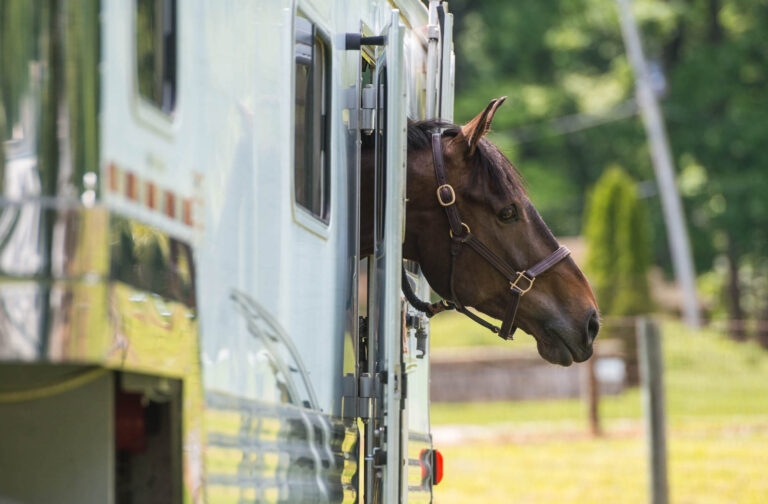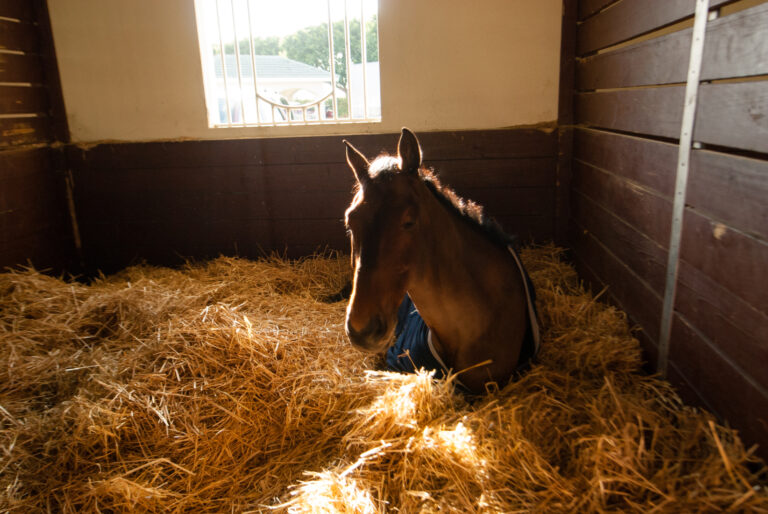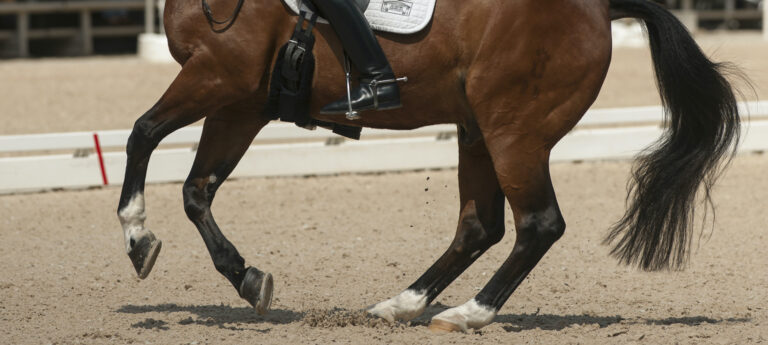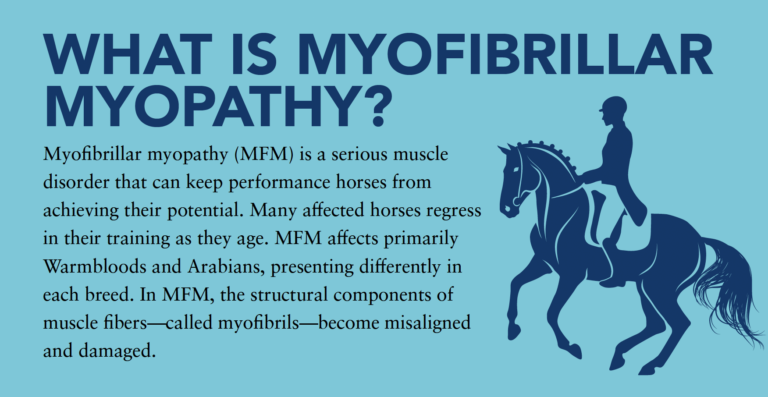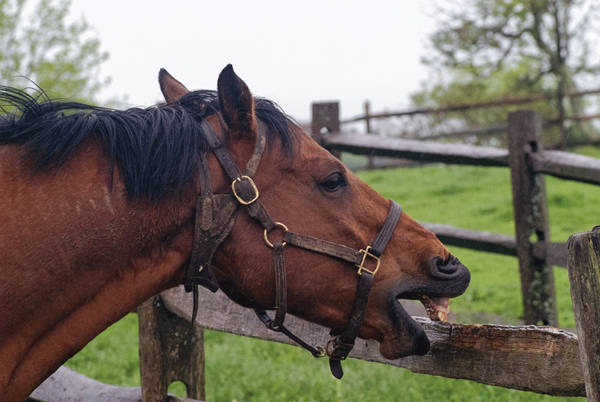
Stress, be it in horses or humans, is an interesting concept. We tend to generally categorize stress as something negative, but the actual definition of stress is a physiologic response to a stressor or stimulus, be it emotional or physical. Stress isn’t always bad. In fact, it is what enables a body to rise to a particular challenge. A portion of the nervous system is activated, resulting in a predictable hormonal response that prepares the body to react. When horses experience stress, the usual “rest-and-digest” activities switch to “fight or flight.”
When a horse reacts to stress, the process begins with an alteration or upset in the normal balance of the hormones in the body. This response is orchestrated by a complex set of events in the nervous system. Specific areas of the brain respond with the result being an increased production of the natural steroid known as cortisol. This substance increases blood sugar and aids in the metabolism of fat and protein, which helps the horse take evasive action and run away.
When a horse encounters a stressful situation and cannot take evasive action, we can see the manifestation of stress with clinical signs such as head-tossing, ear-twitching, the excited look in the eyes, frequent defecation and general agitation, restlessness, pawing, increased respiratory rate and heart rate—all signs of hypervigilance or an exaggerated awareness and response to his surroundings. This response has been described as the “Four Fs”: flight, fight, fidget and freeze.
Stressors in the horse can include the obvious big life events such as weaning, training and breaking, illness, confinement and change in companions. However, even things like having a mismatched rider, maintaining a certain head position—as in the case of hyperflexion—having vision problems or sight limited by walls or equipment or simple changes in routine can elicit a stress response. If you look carefully, you’ll notice that stress and a stress response are part of socializing and training. This ability to adapt is a learned response, and the body tends to easily bounce back from it as the hormones rebalance.
In some situations, however, stress can be problematic. The real concern about it relates to chronic or more long-term stress. In these circumstances, the hormonal imbalance is prolonged and can lead to adverse effects. Outwardly, one might observe common coping behaviors such as cribbing or stall-walking and even decreased food intake. Stress can lead to anxiety or fear. Physiologically, the result of prolonged stimulation of the hormonal pathways can take a toll on the immune system as cortisol will suppress immune function and altered metabolism that can lead to things like low-grade infections, ulcers and weight loss, impacting the general well-being of the horse.
Stress, therefore, has two areas of concern for horsemen. Certainly our management practices can be a source of stress. Training and handling may initially result in stress, but this, hopefully, is short-lived as the horse learns to adapt to new situations. Secondly, stress can be a welfare issue for horses when the stress is more prolonged and begins to affect overall well-being.
Our goal as horse owners should be to understand the horse’s natural state so that we can work toward minimizing stress and limiting it to adaptable, short-term events.
Shauna Spurlock, DVM, MS attended the University of New Hampshire before heading to The Ohio State University for her veterinary training. After graduation she completed a masters degree and residency in clinical pharmacology. She then received additional training in internal medicine at Tufts University and became board qualified with the American College of Veterinary Internal Medicine. She was on the faculty of Virginia Tech before putting her pharmacology training to work at the Food and Drug Administration Center for Veterinary Medicine. Based in Lovettsville, Virginia, she has been in private practice at Spurlock Equine Associates since 1991.


